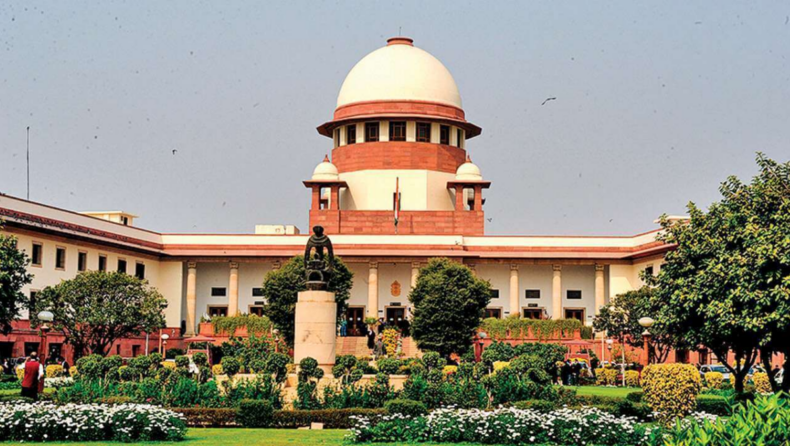The Supreme Court (SC) on Thursday, 31st March 2022, revoked the 10.5% internal reservation for Vanniyars. Upholding the Madras High Court verdict, the SC nullified the Vanniyar Reservation Act 2021 which provides 10.5% internal reservation for the Vanniyar caste in educational institutions and jobs.
The Petition Challenging Madras HC Verdict:
The bench headed by Justices L Nageswara Rao and BR Gavai heard the petition filed by the TN government and Political party PMK challenging the Madras HC verdict to quash the act. The plea stated that the Madras HC verdict was inaccurate and mentioned that the state has the authority to provide a reservation quota for the upliftment of a community
The hearing and SC verdict:
While hearing the case of Pattali Makkal Katchi (PMK) vs A Mayilerumperumal, the bench has directed to cancel the law and added that the act was ‘unconstitutional’. Further, the court held that caste can be a reason for allocation of internal reservation but it cannot be a solitary reason.
Moreover, the SC opined that there is no rational justification to treat the Vanniyar caste as a separate group compared to others in the MBC list. Therefore, the court cited that the Vanniyar Reservation Act 2021 is against articles 14 and 16 of the constitution.
What does the Act state?
The law was enacted by then All India Anna Dravida Munnetra Kazhagam (AIADMK) led Government of Tamil Nadu (TN) on February 2021 before the TN Assembly Election.
The special reservation of seats in educational institutions including private educational institutions in the State of Tamil Nadu and appointments or posts in the services under the state within the twenty per cent reservation for Most Backward Classes (MBC) and Denotified Communities (DNC) Act 2021 provided 10.5% of internal reservation for the Vanniyar caste under the 20% reservation quota for overall MBCs and DNCs in the state of TN.
The petitioners claimed that the Vanniyars were unable to compete with other communities on MBC/DNC list. Hence, the law was enacted to meet the demand of the Vanniyar community.
Petitions Challenging the Act:
The act was passed ahead of the election, before the DMK party came to power in May 2021. Consequently, persons belonging to other MBCs filed around 35 writ petitions challenging the Act in the Madras HC.
The petitioner challenging the act asserted that according to the 102nd amendment, the state has no power to identify or classify any community as backward since it is the Parliament’s concern. furthermore, the petitioners argued that the National Commission of Backward Classes is the only authority to identify and classify castes.
But the state passed the Act without waiting for the recommendation of the commission as well as without consulting any stakeholders or the communities that would be affected because of the Act.
Besides, the argument was put forth based on the government exhibiting preferential treatment by providing internal reservation without having any obtainable data on the population of the Vanniyar caste people and without recent census data.
The Madras HC verdict:
However, on 1st November 2021, The Madras HC ruled out the law observing that the law has been passed without analysing any accessible data on population, socio-educational status and representation in the services of the Vanniyars.
The HC uttered that it is a violation of the constitution to sub-classify any community without having objective criteria.
In this matter, the HC voiced that the Vanniyar caste was given 10.5% internal reservation out of 20 per cent reservation slab for MBC whereas the remaining 115 MBCs would be allocated only 9.5% reservation share.
Published By – Damandeep Singh
Edited By- Kritika Kashyap












